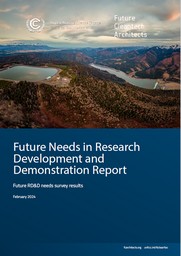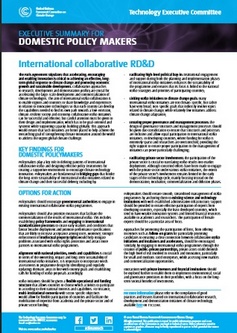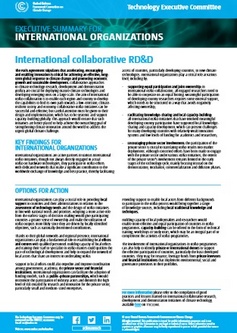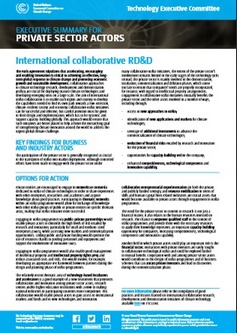RD&D
Future Needs in Research Development and Demonstration Report
The survey provides an overview of future RD&D needs and key barriers and enablers to meet these, both globally and specifically in developed and developing economies, and serves as a starting point to identify areas for further analysis.
The objective of the survey is to achieve a comprehensive overview of the current and future global RD&D needs to fundamentally decarbonize human activity in line with the targets of the Paris Agreement
|
Good practices and lessons learned on international collaborative RD&D initiatives of climate technology
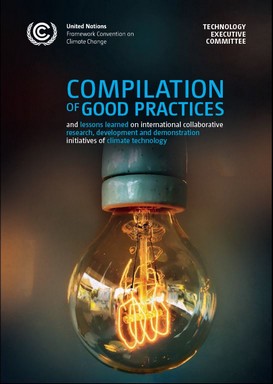 | 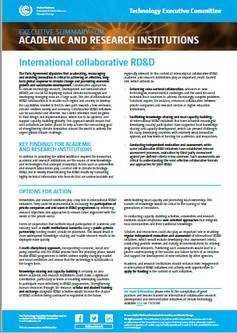 |
The technology framework adopted at the Climate Change Conference in Katowice provides overarching guidance to the work of the TEC while serving the Paris Agreement and recognizes that there is a pressing need to accelerate and strengthen technological innovation so that it can transfer environmentally and socially sound, cost-effective and better-performing climate technologies on a larger and more widespread scale. It also indicates that fostering innovation could be done inter alia through new collaborative approaches to climate technology research, development and demonstration (RD&D).
Responding to this mandate, the TEC, which has been working on technology innovation and RD&D since 2013, agreed to produce a compilation of good practices and lessons learned on countries' RD&D.
It elaborates on case studies’ collaborative designs, policy and financial drivers, inclusiveness, intellectual property rights, approaches to communication and outreach, inter alia. The outcome is to extract good practices and lessons learned, aiming to facilitate the sharing of information on international technology RD&D partnerships and initiatives as well as the effective participation of developing countries in collaborative RD&D initiatives on climate technologies. |
Executive summaries offer a general outline of the committee’s messages on international collaborative RD&D. The messages have been tailored to present the essential information for each of the four target groups on a single page.
